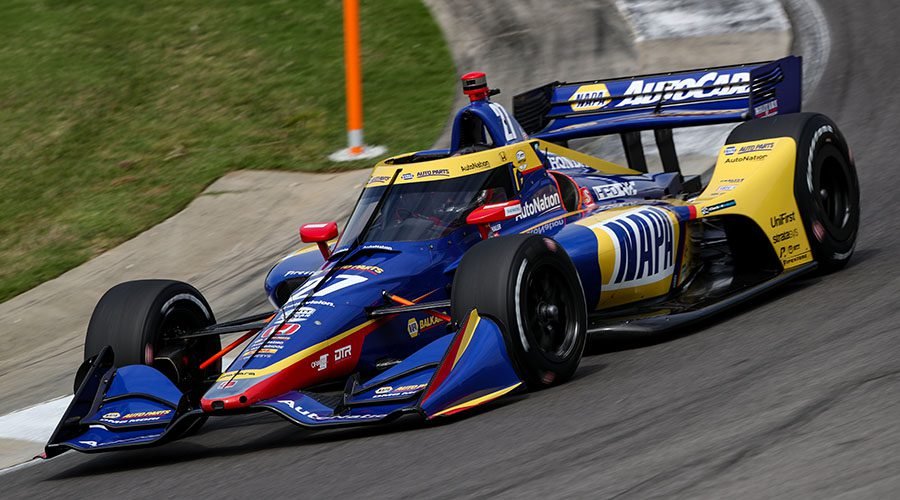Building a strong network is essential for career growth in the racing industry. Whether you’re a driver, engineer, mechanic, or team manager, a well-established network can open doors to opportunities, provide valuable insights, and help you stay ahead in this competitive field. Here’s a step-by-step guide on how to build a racing network for career growth:
1. Identify Your Networking Goals
Clarify Your Objectives:
- Career Path: Determine whether you want to advance as a driver, engineer, team manager, or another role in motorsport.
- Networking Focus: Decide whether you want to connect with potential sponsors, team members, mentors, or industry experts.
Set Specific Goals:
- Short-Term Goals: Attend a certain number of events or reach out to a set number of people each month.
- Long-Term Goals: Build meaningful relationships with key figures in your field and secure potential job opportunities or sponsorships.
2. Attend Racing Events and Competitions
Local and Regional Events:
- Grassroots Racing: Start by attending local and regional racing events, which provide a more accessible and intimate environment for networking.
- Track Days: Participate in track days to meet other racers, enthusiasts, and team members who can share knowledge and advice.
Major Events and Races:
- Professional Races: Attend major racing events like Formula 1, NASCAR, or MotoGP to network with industry professionals, sponsors, and teams.
- Industry Conferences and Expos: Attend motorsport expos, trade shows, and conferences where professionals gather to showcase products, share insights, and discuss future trends.
3. Leverage Social Media and Online Platforms
Social Media Presence:
- Professional Profiles: Create and maintain professional profiles on platforms like LinkedIn, Twitter, and Instagram to showcase your experience, achievements, and interests.
- Engagement: Actively engage with posts from industry professionals, share relevant content, and participate in discussions to build visibility.
Online Communities:
- Forums and Groups: Join online communities, forums, and social media groups dedicated to racing and motorsport, such as Reddit’s r/motorsports or Facebook racing groups.
- Networking Platforms: Utilize platforms like Motorsport.com or dedicated racing forums to connect with professionals, teams, and enthusiasts.
4. Develop Relationships with Key Industry Figures
Seek Out Mentors:
- Identify Potential Mentors: Look for experienced professionals in your area of interest who can offer guidance and insights.
- Build Genuine Relationships: Approach potential mentors respectfully, showing a genuine interest in their work and seeking advice on your career path.
Connect with Team Members:
- Build Rapport: Form relationships with team members such as mechanics, engineers, and pit crew, who can provide valuable information about team dynamics and opportunities.
- Collaborate: Offer help and show willingness to collaborate on projects or events to strengthen these connections.
5. Participate in Racing Schools and Training Programs
Racing Schools:
- Enroll in Programs: Attend reputable racing schools to not only develop your skills but also network with instructors, fellow drivers, and industry insiders.
- Certifications: Obtain certifications that can enhance your credibility and provide opportunities to connect with teams looking for trained professionals.
Workshops and Clinics:
- Attend Workshops: Participate in workshops and clinics focused on specific skills like car setup, engineering, or driving techniques.
- Interactive Learning: These events often involve interactive sessions where you can engage with experts and peers, building connections in a hands-on environment.
6. Volunteer and Gain Experience in Various Roles
Volunteering Opportunities:
- Race Day Volunteering: Volunteer at local races or major events in roles like flagging, pit support, or race logistics to gain experience and meet professionals.
- Internships: Seek internships with racing teams, event organizers, or motorsport companies to build relationships and gain industry knowledge.
Role Diversification:
- Broaden Experience: Work in various roles (e.g., driver, pit crew, engineering) to understand different aspects of racing and expand your network within the industry.
- Showcase Versatility: Demonstrate your versatility and willingness to learn, which can lead to more opportunities and recommendations.
7. Build a Personal Brand
Establish a Strong Presence:
- Online Portfolio: Create an online portfolio or website showcasing your racing achievements, skills, and experience.
- Consistent Branding: Maintain a consistent and professional image across all platforms, ensuring your messaging aligns with your career goals.
Content Creation:
- Share Valuable Content: Write blogs, create videos, or host podcasts related to racing, driving techniques, or industry trends to position yourself as a knowledgeable professional.
- Collaborate: Collaborate with other content creators or racing professionals to expand your audience and connect with new industry contacts.
8. Seek Sponsorship and Partnership Opportunities
Approach Potential Sponsors:
- Research Sponsors: Identify companies or brands that align with your racing style and values.
- Create a Proposal: Develop a compelling sponsorship proposal that highlights what you can offer in return, such as brand exposure or promotional content.
Form Partnerships:
- Collaborate with Teams: Partner with racing teams, local businesses, or motorsport organizations to build relationships and gain visibility.
- Mutual Benefits: Look for partnerships that offer mutual benefits, such as promotional opportunities or resource sharing.
9. Stay in Touch and Follow Up
Regular Communication:
- Stay Connected: Regularly follow up with new contacts to keep relationships warm and show genuine interest in their work.
- Provide Value: Offer valuable insights, share opportunities, or provide support to maintain strong connections.
Build Long-Term Relationships:
- Consistency: Be consistent in maintaining your network by engaging with contacts through messages, calls, or meet-ups.
- Celebrate Successes: Congratulate contacts on their achievements and celebrate their successes to build rapport and goodwill.
10. Join Professional Organizations and Associations
Motorsport Associations:
- Membership: Join organizations such as the Sports Car Club of America (SCCA), National Auto Sport Association (NASA), or FIA to access networking events, resources, and opportunities.
- Participate in Events: Attend events, seminars, and networking sessions organized by these associations to meet professionals and industry leaders.
Networking Groups:
- Specialized Groups: Join networking groups or clubs that cater to specific aspects of racing, such as female racers, young drivers, or vintage car enthusiasts.
- Active Participation: Actively participate in these groups by attending events, engaging in discussions, and contributing ideas.
Conclusion
Building a racing network requires a combination of strategic planning, active participation, and genuine relationship-building. By attending events, leveraging social media, seeking mentorship, volunteering, and joining professional organizations, you can expand your network and open doors to new opportunities. Remember that networking is not just about making connections but also about nurturing relationships, providing value, and growing together with others in the industry. A strong network will support your career growth and help you navigate the dynamic world of motorsports.











